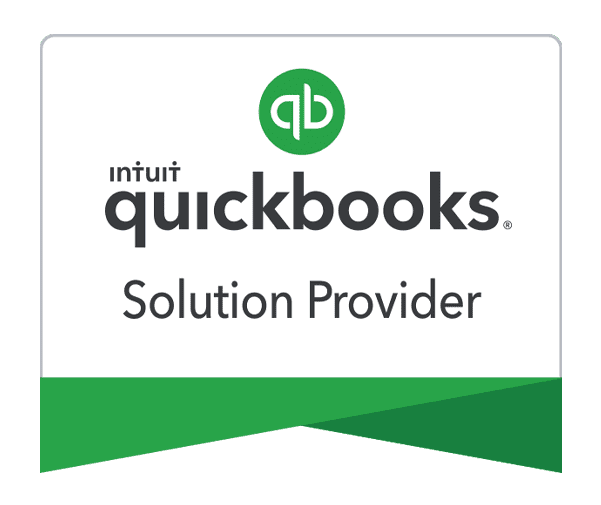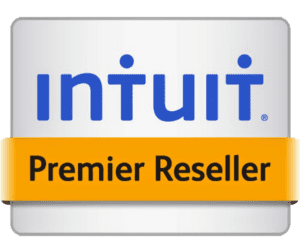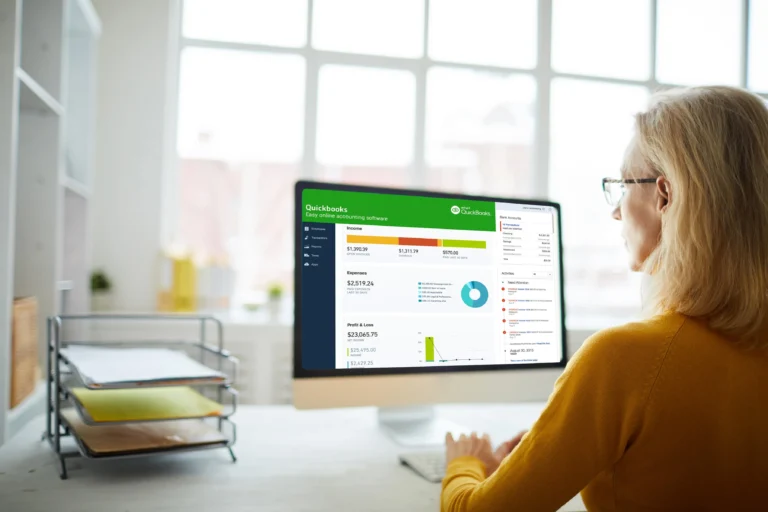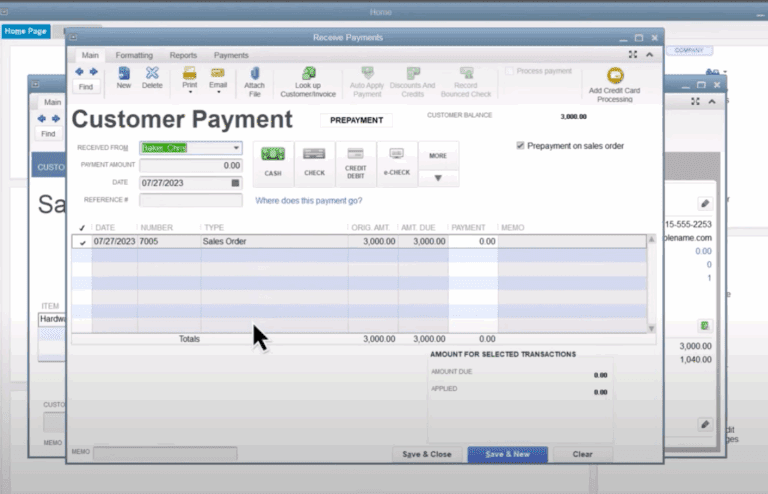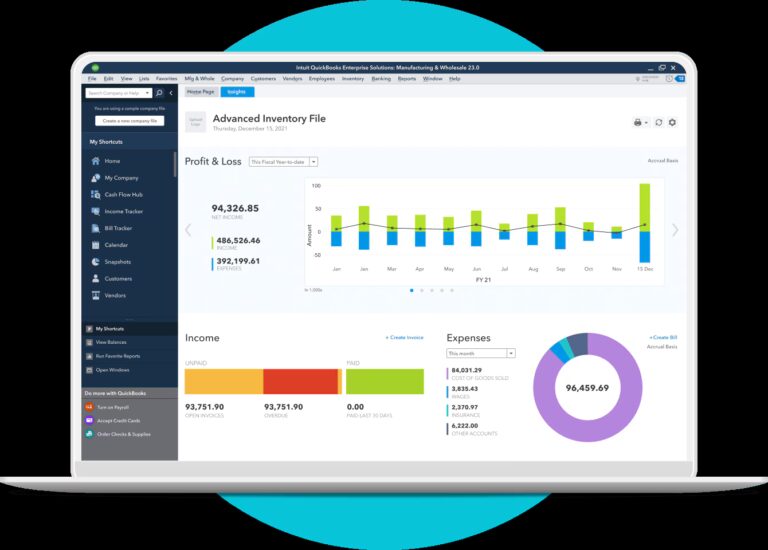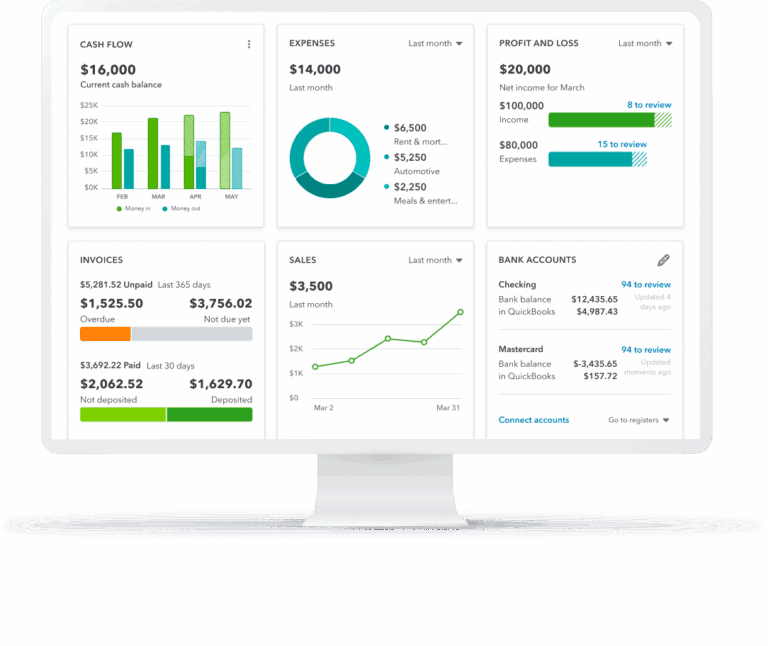Just register for the free trial below and we will send you everything you need to evaluate QuickBooks Enterprise including 30-day access, sample company files, and the full 88-page QuickBooks Enterprise Guide that details everything that you can do in the software. Free end-to-end consultation and support are included so if you need any help along the way, just let us know!

Paygration, Inc.
QuickBooks Premier and QuickBooks Enterprise are two versions of the QuickBooks Desktop software that cater to different business needs. While both versions offer robust accounting functionality, there are notable differences, especially in terms of scalability and advanced features.
In this article, we’ll compare Premier vs. Enterprise side-by-side to help you decide which desktop accounting software is right for you.
Scalability
QuickBooks Enterprise is more scalable than Premier in terms of user and inventory item capacity. Premier is designed for small to medium-sized businesses with up to five concurrent users and can only support up to 14,500 inventory items. This makes it a great solution for companies that do not require extensive user access or complex inventory management needs.
On the other hand, QuickBooks Enterprise is built to handle larger companies with higher user requirements and more complex inventory management needs. It can accommodate up to 40 users and 100,000 inventory items, making it suitable for businesses that anticipate scaling over time and those that manage a large volume of inventory.
Learn why QuickBooks Enterprise is great for multi-user environments.
If you would like to try the full version of QuickBooks Enterprise Desktop, click here to get a free, 30-day no-commitment trial plus access to the Resource Guide that lists all the features available in Enterprise.
Customization
QuickBooks Enterprise provides more extensive customization options compared to QuickBooks Premier. It allows you to tailor the software to your business needs by customizing fields, forms, and templates. For example, let’s say you run a construction company and want to track additional information for each customer. With QuickBooks Enterprise, you can create custom fields in the customer profile to record specific details like project start date, project manager, or contract type. This customization ensures that you capture all the necessary information relevant to your business.
Customization options in QuickBooks Enterprise
You can also create custom reports, modify existing reports, and design workflows specific to your business processes. This level of customization enables you to adapt the software to match your unique business requirements.
Inventory Management
QuickBooks Premier offers basic functionality for tracking quantities on hand, managing purchase orders, and fulfilling sales orders. It is suitable for small retail shops, boutiques, or specialty stores that need to track the quantities of items they have in stock. In contrast, QuickBooks Enterprise provides advanced inventory management features. It allows you to track inventory items by serial and lot numbers, scan barcodes for quick and accurate tracking, and manage inventory across multiple warehouse locations.
Enterprise also offers customizable inventory reports for in-depth analysis. This makes it a better fit for large businesses with extensive inventory requirements, such as retail businesses with multiple locations, large-scale manufacturers, and distributors with multiple warehouses.
Inventory management in QuickBooks Enterprise
Explore how QuickBooks Enterprise can streamline your inventory management workflows.
Advanced Pricing
While both Premier and Enterprise allow you to set customized price levels, Enterprise offers more advanced pricing capabilities. With Enterprise, you can create pricing rules based on various criteria, such as customer types, quantity purchased, and customer groups. This provides you with greater flexibility in managing your pricing structure.
For example, you can set up rules that offer discounts based on the number of items purchased or apply different price levels for specific customer groups. This advanced pricing module is beneficial for businesses with complex pricing structures or those that want to incentivize bulk purchases. QuickBooks Premier, on the other hand, offers basic pricing options, limiting customer-specific discounts.
Learn more about advanced pricing in QuickBooks Enterprise.
Fixed Asset Management
QuickBooks Enterprise includes a Fixed Asset Manager (FAM) that allows you to record and track fixed assets within the software. You can specify details such as acquisition date, purchase cost, depreciation method, and useful life for each asset. The FAM calculates the depreciation expense based on the chosen method and asset details.
When it’s time to dispose of a fixed asset, the FAM enables you to record the disposal details, including the disposal date, sale proceeds (if applicable), or the write-off value if the asset is being removed from your books without a sale. This built-in feature streamlines the management of fixed assets and provides you with accurate depreciation calculations.
Read our detailed article about QuickBooks Enterprise’s Fixed Asset Manager and who should use it.
Reporting and Data Analysis
Both QuickBooks Premier and QuickBooks Enterprise offer a range of standard reports for financial analysis. However, QuickBooks Enterprise takes reporting to a higher level with advanced reporting capabilities. It allows you to create customized reports, such as job costing, purchases by vendor, and sales by customer reports, tailored to your specific business requirements.
Enterprise offers features like custom filters to generate and customize reports, the ability to compare data across different time periods, and interactive dashboards for data visualization. These advanced reporting features are particularly useful for teams (i.e., stakeholders) that heavily rely on data analysis for decision-making and require more in-depth insights into their financial performance.
Discover the top 10 most popular reports in QuickBooks Enterprise.
Customer Support
QuickBooks Enterprise provides Priority Circle membership to its users, offering premium technical support. This includes access to a dedicated customer success manager who can provide personalized assistance and help you maximize the benefits of using QuickBooks Enterprise. Priority Circle members also receive faster response times and priority access to product updates and training resources.
In comparison, QuickBooks Premier users have access to standard customer support, which includes online resources, community forums, and phone support during regular business hours. While both versions offer customer support, QuickBooks Enterprise provides an enhanced level of service, especially for businesses that require immediate assistance or have more complex needs.
Integrations
Both QuickBooks Premier and QuickBooks Enterprise support third-party integrations to extend the functionality of the software. However, QuickBooks Enterprise offers a wider range of integrations and has a larger ecosystem of compatible apps. This allows businesses to integrate with industry-specific software, such as CRM systems, project management tools, payroll services, and e-commerce platforms, to streamline their operations and enhance efficiency.
The broader range of integrations available with QuickBooks Enterprise makes it more suitable for businesses with unique requirements or those that rely on specialized software for specific business functions.
Bottom Line
Both QuickBooks Premier and QuickBooks Enterprise are powerful accounting software solutions, but they differ in terms of scalability, advanced features, and pricing. QuickBooks Premier is suitable for small to medium-sized businesses with basic accounting needs, while QuickBooks Enterprise caters to larger businesses with more complex requirements.
- advanced inventory in quickbooks enterprise diamondfield service management for quickbooks enterprisequickbooks enterprisequickbooks enterprise advanced inventoryquickbooks enterprise advanced reportingquickbooks enterprise diamondquickbooks enterprise inventoryquickbooks enterprise platinumquickbooks premier vs enterprise

